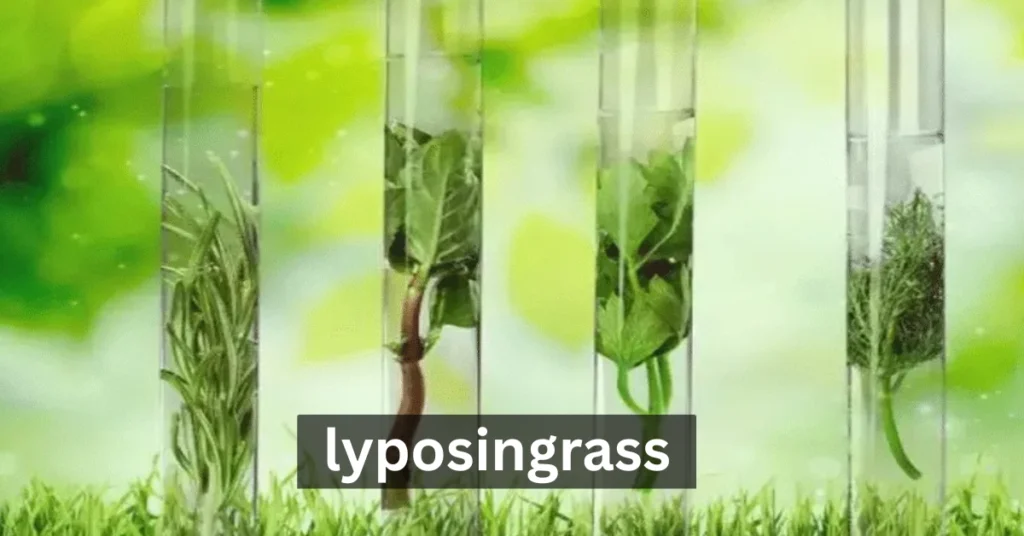What Is Lyposingrass? Uncovering the Mystery Behind the Latest Wellness Buzzword
In a world where new wellness trends seem to appear overnight, few have sparked as much curiosity as lyposingrass. You might have seen the term popping up on social media, in fitness group chats, or tucked into articles promising better health and vitality. But what exactly is lyposingrass? Is it a new herbal supplement? A rare plant? A detox method? Or something entirely unexpected?
In this article, we’ll unravel the mystery of lyposingrass — exploring what it is (and isn’t), why it’s attracting attention, and how it might fit into modern health routines.
First Things First: What Is Lyposingrass?
At its core, lyposingrass appears to refer to a plant-derived wellness product with potential applications in metabolic health, natural detoxification, and stress relief. Though concrete scientific studies are still in short supply, early descriptions suggest that it’s a leafy herb native to temperate regions, known for its mild, grassy flavor and light aromatic properties.
Some enthusiasts describe it as a natural energizer and mild diuretic, while others claim it assists with digestion, inflammation, and cleansing the body of impurities. Like many trending wellness ingredients, lyposingrass has become more of a concept and lifestyle symbol than a rigorously defined product.
Where Did the Lyposingrass Trend Come From?
While no single source can claim credit for launching lyposingrass into the wellness spotlight, it seems to have emerged through niche health communities and plant-based lifestyle advocates. The plant itself may have roots in traditional herbal medicine, passed down quietly until rediscovered by modern enthusiasts seeking natural alternatives to mainstream health products.
Social media influencers and wellness bloggers have amplified its appeal, often touting lyposingrass teas, tonics, and supplements as part of detox programs or morning rituals. Its name alone — unusual and slightly mystical — has helped fuel curiosity and conversation.
What Is Lyposingrass Used For?
Although exact uses can vary, most discussions around lyposingrass highlight a few recurring themes:
1. Natural Detoxification
Fans of the herb claim it can gently flush out excess water and toxins, supporting the body’s natural cleansing processes. Lyposingrass teas and infused waters are often promoted as a daily ritual for resetting digestion and rehydrating the system.
2. Stress and Mood Balance
The light, grassy scent of lyposingrass is believed to have calming effects, making it a popular ingredient in herbal infusions aimed at soothing anxiety and mental fatigue. Some wellness guides suggest combining it with other herbs like chamomile or lemon balm.
3. Metabolism Support
Though research is scarce, some proponents suggest that lyposingrass contains compounds that could boost metabolism or aid in healthy weight management when paired with exercise and a balanced diet.
4. Digestive Aid
Like other grassy herbal teas, lyposingrass is often consumed after meals to ease bloating, promote gentle digestion, and reduce feelings of heaviness.
How Is Lyposingrass Consumed?
One reason for lyposingrass’s growing popularity is its versatility in how it can be prepared and enjoyed. Common methods include:
- Herbal tea: Dried lyposingrass leaves steeped in hot water for 5–7 minutes.
- Cold infusions: Fresh leaves soaked overnight in cool water for a refreshing drink.
- Powdered supplements: Ground lyposingrass added to smoothies, juices, or health tonics.
- Essential oil blends: Extracted scent compounds used in aromatherapy for stress relief.
- Culinary seasoning: Finely chopped leaves incorporated into salads, soups, or grain dishes for a mild, herbal kick.
Why Is Lyposingrass Important?
Beyond its practical uses, lyposingrass represents something bigger happening in modern wellness culture. It’s part of a growing interest in simpler, plant-based remedies that promise balance and rejuvenation without heavy reliance on pharmaceutical interventions.
As consumers become more cautious about synthetic ingredients and chemical additives, natural products like lyposingrass appeal to those seeking gentler, more holistic health solutions. Its rising popularity signals a broader shift toward personalized, plant-based wellness practices grounded in both tradition and modern experimentation.
Is Lyposingrass Scientifically Proven?
At present, there’s limited clinical research available on lyposingrass specifically. Most of its reported benefits are based on anecdotal evidence and comparisons to similar herbs traditionally used in natural medicine.
That said, many plants with comparable properties — mild diuretics, aromatic herbs, and natural digestives — have been studied for centuries and proven to offer legitimate health benefits. While lyposingrass itself might still be under the radar in academic circles, its properties fit well within the known advantages of leafy, chlorophyll-rich herbs.
Common Misconceptions About Lyposingrass
As with any trend, myths can quickly outpace facts. Here are a few clarifications:
- It’s not a magic weight loss herb. While it may support hydration and digestion, no herb alone can replace a healthy diet and exercise.
- It’s not a substitute for medical treatment. Though it can complement wellness routines, lyposingrass shouldn’t replace prescribed medications or therapies.
- It isn’t toxic or hallucinogenic. Despite online rumors, it’s generally regarded as a gentle, food-safe plant much like lemongrass or nettle.
Should You Try Lyposingrass?
If you enjoy herbal teas, plant-based supplements, or natural stress-relief practices, adding lyposingrass to your wellness routine could be worth exploring. It’s gentle, versatile, and well-suited to anyone looking for a mild herbal boost without strong side effects.
Before starting any new herb or supplement, especially if you’re pregnant, nursing, or managing a health condition, it’s always wise to consult with a healthcare professional.
Final Thought
Whether you’re a seasoned herbalist or a newcomer to plant-based wellness, lyposingrass offers an intriguing, gentle way to explore natural health care. Its refreshing flavor, calming properties, and growing online community make it a symbol of the modern shift toward holistic, intuitive self-care.
While science may still be catching up with the trend, the cultural appetite for natural, versatile herbs like lyposingrass shows no signs of slowing down. And who knows — it might become a staple in your daily wellness ritual before long.






